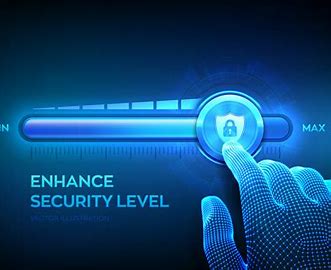Understanding the Importance of Security in Web Hosting
When it comes to web hosting, security should be one of your top priorities. With the increasing number of cyber threats and attacks, it is crucial to choose a hosting provider that offers robust security features. By understanding the importance of security in web hosting, you can ensure the safety and integrity of your website.
Cybercriminals are constantly looking for vulnerabilities to exploit and gain unauthorized access to websites. A compromised website can lead to various consequences, including data breaches, malware infections, and damage to your reputation. Therefore, investing in a hosting provider that prioritizes security is essential to protect your online presence.
Firewall Protection and Intrusion Detection Systems
A hosting provider that offers firewall protection and intrusion detection systems can significantly enhance the security of your website. Firewalls act as a barrier between your website and potential threats, filtering out malicious traffic and preventing unauthorized access.
Intrusion detection systems, on the other hand, monitor your website for suspicious activities and alert you in real-time if any unauthorized access attempts are detected. These security measures work together to identify and block potential threats before they can cause harm to your website and its data.
SSL Certificates and Data Encryption
SSL certificates and data encryption are crucial security features to look for in a hosting provider. SSL (Secure Sockets Layer) certificates ensure the secure transmission of data between your website and its visitors. When a website has an SSL certificate, it is displayed with a padlock symbol in the browser’s address bar, indicating that the connection is secure.
Data encryption further enhances the security of your website by encoding sensitive information, such as customer data and login credentials. This ensures that even if the data is intercepted, it cannot be read or accessed by unauthorized individuals. By choosing a hosting provider that offers SSL certificates and data encryption, you can establish trust with your visitors and protect their confidential information.
Regular Backups and Disaster Recovery Plans
Regular backups and disaster recovery plans are essential security features that can save your website from potential data loss and downtime. Accidental deletions, hardware failures, or even security breaches can result in the loss of critical data. However, with regular backups, you can restore your website to a previous state and minimize the impact of such incidents.
In addition to backups, a hosting provider should also have a well-defined disaster recovery plan in place. This includes strategies and procedures to quickly recover and restore your website in the event of a major disruption, such as a natural disaster or a cyber attack. By prioritizing regular backups and disaster recovery plans, you can ensure the continuity and availability of your website.
24/7 Monitoring and Support Services
Having 24/7 monitoring and support services is crucial for timely detection and resolution of any security issues that may arise. A hosting provider that offers round-the-clock monitoring can proactively identify and respond to potential threats, ensuring the continuous protection of your website.
In addition to monitoring, reliable support services are essential for resolving security-related concerns and providing assistance whenever you need it. Whether it’s addressing security vulnerabilities or helping you implement additional security measures, having a dedicated support team can give you peace of mind and help you navigate through any security challenges.


Leave A Comment